Review: 'Phule' is an audiobook disguised as a film, saved only by Pratik Gandhi
This film had everything going for it: an inspiring real-life subject, talented lead actors, and a story that deserved to be told with heart. But what unfolds on screen is more of a lifeless textbook lesson than a film that moves or inspires.
Published: Friday,Apr 25, 2025 05:15 AM GMT-06:00

Another day, another biopic. And yet, Phule somehow manages to take one of the most powerful and revolutionary stories from Indian history and strip it of all its cinematic spark. Directed by Ananth Mahadevan and backed by Zee Studios, Dancing Shiva Films, and Kingsmen Productions, this film had everything going for it, an inspiring real-life subject, talented lead actors, and a story that deserved to be told with heart. But what unfolds on screen is more of a lifeless textbook lesson than a film that moves or inspires.
A Noble Start That Goes Nowhere

The film opens with Savitribai Phule (played by Patralekha) navigating the plague-ridden lanes of Poona (now Pune), offering help to a sick child and taking him to a doctor. It's a promising setup, hinting at the grit and compassion of the legendary social reformer. But before we can emotionally engage, we're flung into another flashback, the story of Jyotirao Phule (Pratik Gandhi). And just like that, the narrative jumps from one era to another with the subtlety of a sledgehammer.
The film attempts to chronicle how Jyotirao and Savitribai challenged the regressive caste system, promoted girls’ education, and paved the way for women empowerment. But instead of an inspiring journey, we get a dull, linear march through key milestones, like ticking boxes on a history sheet. There are time jumps, dramatic pauses, and even a narrator (Sharad Kelkar) who tries to breathe life into the storytelling. Unfortunately, it feels more like he’s reading an audiobook than narrating a gripping cinematic tale.
A History Chapter Disguised as a Film

Let’s be honest, we aren’t expecting a masala blockbuster with dance numbers and punchlines here. But we are expecting cinema. Emotions. Engagement. A reason to care. Instead, Phule plays out like a government documentary stitched together with stiff scenes and uninspired dialogue.
What could’ve saved this film? For starters, some insight into Phule’s inner world. His doubts, fears, motivations, the tension in his relationships, the obstacles he battled mentally, not just externally. There's so much scope in his life to build a layered portrait. But the film chooses to skim the surface, leaving us with a bland, un-researched narrative that feels stretched, slow, and soul-sapping.
The screenplay is lifeless, and the execution lacks imagination. What could’ve been a stirring drama is reduced to a sequence of important dates and dry dialogues. It feels like watching a “slice-of-life” documentary rather than a passionate film about a revolutionary thinker. Time jumps are used not to build emotion, but just to get to the next chapter. The final scenes depicting Phule’s death also fail to land emotionally, ending the film on a dull, whimpering note.
Pratik Gandhi: The Only Light in This Dreary Tunnel

And now, let’s talk about the only saving grace, Pratik Gandhi. This man is a powerhouse. From his very first scene, he steps into the skin of Jyotirao Phule with such authenticity, it feels like he’s lived the man’s life. His eyes speak, his voice resonates with sincerity, and his transformation from a young revolutionary to an aged, weary reformer is so believable, it deserves every bit of praise.
One of the most impactful moments is when Phule suffers a paralysis attack. Pratik Gandhi’s portrayal, his twitched mouth, the effortful speech from just one side, the internalized pain feels so raw and real, it stands miles above the film’s overall mediocrity. Credit also goes to the makeup department for nailing his aged look, but it’s Gandhi who brings the real depth. He embodies the essence of the man, even when the script fails him.

While Savitribai’s role offers plenty of room for impact and depth, Patralekha feels like a complete miscast. There’s no emotional resonance, no rhythm to her delivery, and strangely enough, her accent seems more British than the colonialists themselves. What should’ve been a fiery, passionate portrayal ends up flat and underwhelming. Her performance lacks the gravitas needed to match Gandhi’s intensity, making their dynamic fall short of the revolutionary force they were in real life.
Supporting Cast

Vinay Pathak as Jyotirao’s father does what he can with his limited screen time. His presence supports the story, but that’s about it. Darsheel Safary, once a child star, appears as Yashwant Phule but barely gets a chance to showcase anything beyond a cameo. Amit Behl as the head Brahmin and Akshaya Gurav as Fatima do justice to their roles, but again, the script doesn’t give them much to work with. Everyone feels like they’re just going through the motions of a well-rehearsed school play.
The Verdict

Phule had everything going for it, a legendary figure, a talented actor in the lead, and a story that could’ve sparked deep thought and conversation. But what we get is a half-hearted, slow, uninspired attempt that feels more like a history lesson than a cinematic experience.
If not for Pratik Gandhi’s magnetic performance, this film would be completely forgettable. He is the only element that keeps you from dozing off or switching to your social media reels.
Rating--2/5 stars
Join Our WhatsApp Channel
Stay updated with the latest news, gossip, and hot discussions. Be a part of our WhatsApp family now!
Join NowYour reaction
 Nice
Nice Great
Great Loved
Loved LOL
LOL OMG
OMG Cry
Cry Fail
Fail


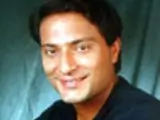




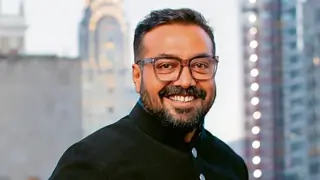
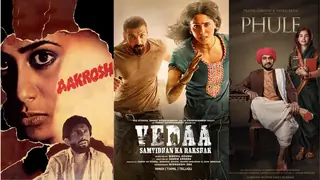

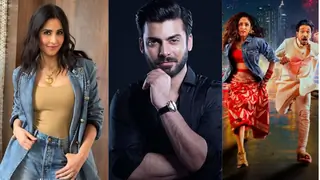

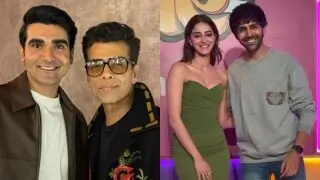







Post a comment